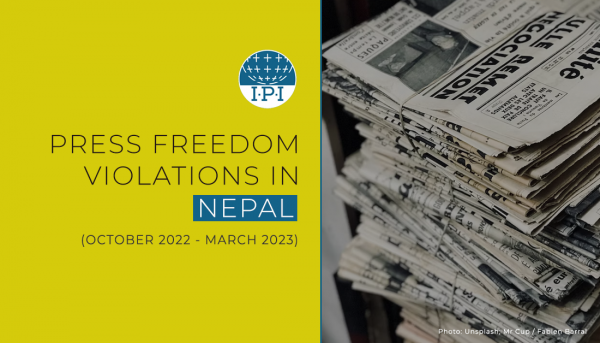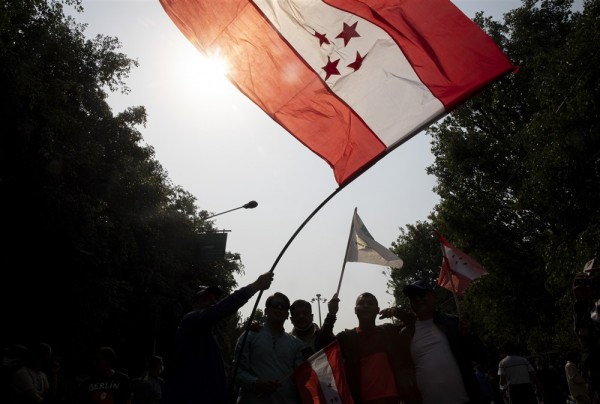His Excellency Girija Prasad Koirala
Prime Minister
Katmandu
Nepal
Fax: + 977 1 227 286
Vienna, 7 June 2001
Your Excellency,
The International Press Institute (IPI), the global network of editors and media executives, condemns the recent decision of the Nepalese authorities to arrest the editor and two company directors of the Kantipur Daily, one of the largest private sector newspapers in Nepal.
On the basis of information provided to IPI, Yuvaraj Ghimire, editor of the Kantipur Daily; Kailash Sirohiya, managing director of the newspaper; and Binod Raj Gyawali, director of Kantipur Publications (P) Ltd.; were arrested on 6 June and taken by plain clothes policemen to the District Police Office at Hanuman Dhoka in the capital. While being escorted from the newspaper’s offices, Ghimire commented to journalists that he was unaware of the reason for his arrest.
Although police have apparently refused to comment, IPI understands that all three detainees have been arrested on charges of treason. The treason charges are based on an article published by the Kantipur Daily in its 6 June edition. Written by Babu Ram Bhattarai, leader of the Communist Party of Nepal, the article stated that the deaths of King Birenda and nine other members of the royal family, in an attack on 1 June, were the result of a political conspiracy formed by the Indian intelligence agencies. Rejecting the claim that the murders were the result of arguments over the Crown prince’s future wife, Bhattarai went on to criticise the military for failing to protect the King and prevent the deaths of the other royal family members.
At present, the editor and two directors continue to be held in detention by the Nepalese authorities. On 7 June their lawyer, Ram Khrisna Nirala, was allowed to visit them in detention. The Nepalese authorities have since stated that statements would be taken from the detainees on 11 June, once the state mourning for the death of the King is officially over. So far, no date has been set for a court appearance in which the lawyer acting for the detainees will be able to argue for their release; however, the first opportunity for such a hearing is 11 June. The arrest of Ghimire, Sirohiya and Gyawali is not the first time the authorities have acted harshly concerning articles written by Bhattarai.
On 20 April 1999, Krisna Sen, editor of the Janadesh newspaper, was arrested along with two other staff members after the newspaper interviewed Bhattarai. Aside from the arrests, the authorities confiscated over 20,000 copies of the newspaper in a bid to prevent circulation of Bhattarai’s interview. Sen was finally released on 15 March 2001. In the past, the authorities have also used the harsh Press and Publications Act to suppress the media. The act prohibits publication of material that promotes disrespect towards the King or the royal family.
While accepting the fact that this is a time for reflection and mourning in Nepal, IPI strongly believes the media have a legitimate right to comment on the murder of the King and other members of the royal family. In any democratic society, the media play the essential role of informing the public and, naturally, such a role involves the right to express an opinion; especially where no further factual information has been provided. This is particularly true in the present case, where Your Excellency’s government has apparently sought to stifle comment on the King’s death by failing to provide exact and detailed information. As a result, the media have been forced to operate in a vacuum.
Therefore, IPI calls on Your Excellency to uphold the Nepalese Constitution that expressly guarantees freedom of the media and release Ghimire, Sirohiya and Gyawali immediately. By doing so Your Excellency will be reinforcing the right of every journalist to practice his or her profession free of intimidation and harassment.
We thank you for your attention.
Yours sincerely,
Johann P. Fritz
Director


